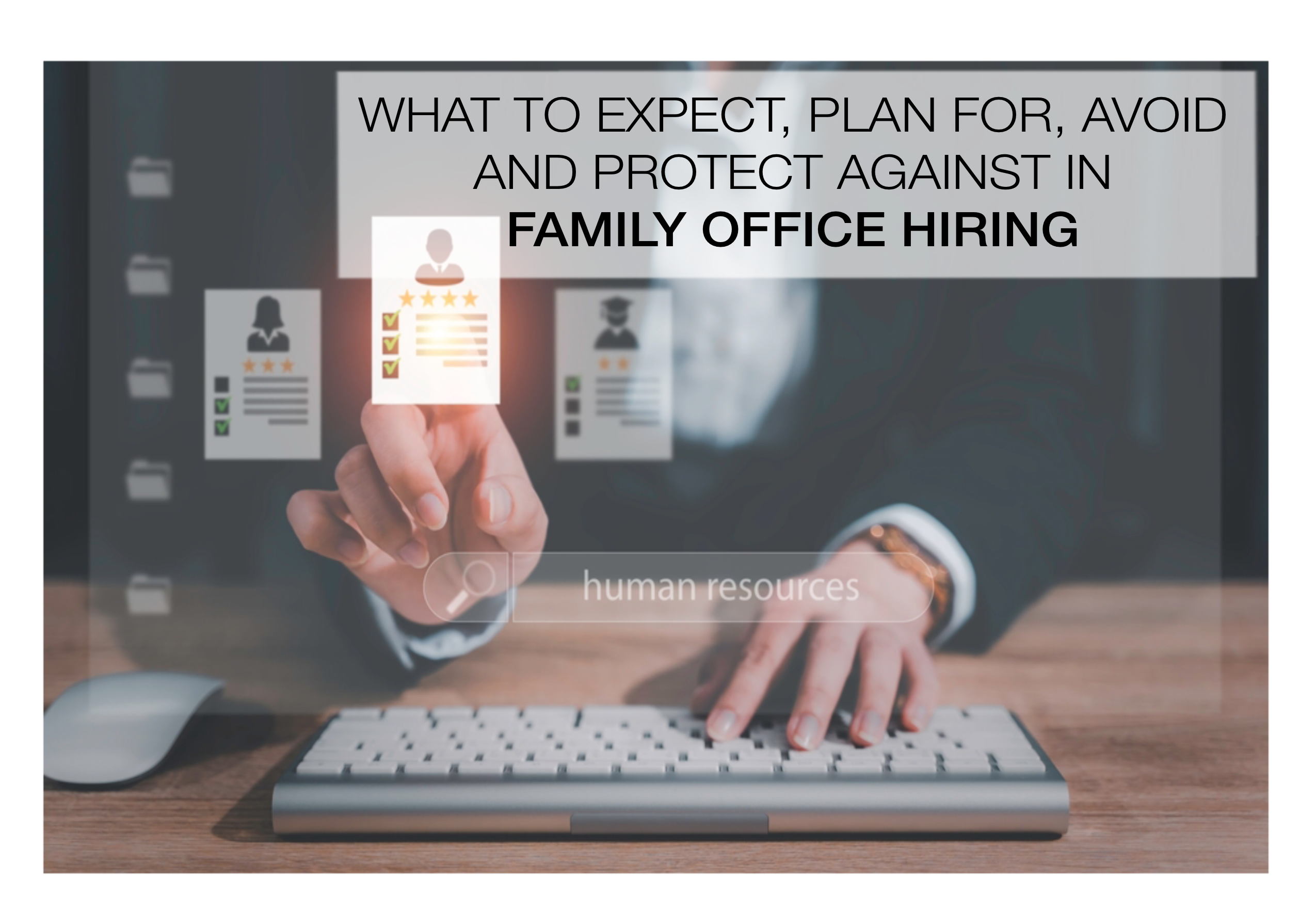Hiring any executive position takes serious consideration. None more so than hiring for positions within your family office. No less a business than any other enterprise, a family office arguably has far more at stake.
The patriarch, matriarch or head of the family must ensure anyone hired to handle the family office’s affairs can be trusted not only with the financial dealings, but dealings with intimate family details, fellow staff and being the family’s most trusted advisor. This person or people will be welcomed into the inner sanctum of the family’s workings. They’ll know your relatives, possibly sit at your table, travel with you for business – and maybe even pleasure.
As such, and atop it all, they must have your back. Whether one individual or a team, depending on the size, global scope and complicated nature of your family’s personal and financial affairs and holdings, their commitment, dedication and honour must be unfailing.
How can you tell all this from some interview process? Treat the selection process like the high-level position – and your organisation like the professional organisation – they both are.
Take a step back for a moment. Do you have an HR unit? Do you have HR policies? How tight an HR department do you run? Have you considered its importance at all? Before bringing on any new employee, hiring, employment and firing protocols should be codified in an employee manual. It will outline the terms of their engagement, including whether you will offer them health insurance, what access they may be provided, any confidentiality they must maintain. In the presence of someone from the family office, wearing the HR hat, they should sign two copies – one for them, one for you.
Beyond the employee manual, new hires should be bound by employment contracts. These should clearly define their roles, responsibilities, expected confidentiality and compensation, including benefits. This should be drafted by a qualified HR or contracts attorney, with time given to the prospective hire to have their counsel review it as well.
Not to be overlooked, contracts and employee handbooks together can help remove any financial target a family office may have in the eyes of a scorned employee.
Depending on the size of your family office, you could have an accounting firm versed in payroll handle the process. Or you could engage a payroll company to help manage at least part of the “administrivia” related to employment. These a la carte engagements can include as many or few services as the family needs, including payroll delivered from desktop or mobile; HR technology; tax services related to payroll; and health and other benefits management.
As satisfying as hiring a qualified professional can be, letting someone go for cause or circumstance can be equally frustrating. This is where the contract will help protect the family and the employee. If released by circumstance, such as downsizing, repositioning or relocating the office, or some other reason, the employee may have little recourse. However, if for cause, such as personal transgressions, especially those outlined in the employee manual, the contract and manual together can help protect the office. Moreover, make sure any transgressions are followed by written warnings.
Whether for circumstance or cause, a severance package, including a written release promising no future action by the employer or employee, can smooth their departure.
After reading this article, it should be clear that recruiting, hiring, onboarding, managing and even releasing an employee requires a professional process. Too many family offices don’t have these processes in place – to their peril. Simply put, if you don’t know what you don’t know, you’ll never know the pitfalls to avoid. If you have any questions – and you certainly may – we’re here to lend guidance.

Leave A Comment